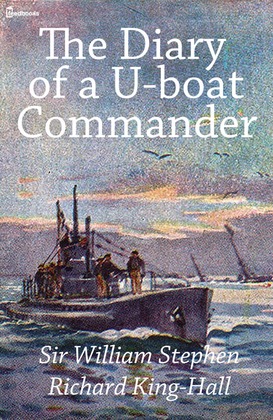
This is a short book dating from the end of the First World War. While an entertaining read, the work is deceptive. It is written in the voice of a German naval officer, as a diary of his reflections. As a social elite, he expects - but at first must only aspire - to command his own Unterseeboot. With experience and attrition in the submarine officer-classes, his desire is eventually successful.
The 'diary' balances between gritty descriptions of life at/under the sea, and provides a convincing narrative of tense battles, fear of attack, and cramped, tense boredom between actions while at sea. While on land, the sailor pines for a distant, but teasingly interested female who is attached to an older, corpulent army officer.
It is the end of the story where the tension begins to fall apart - when it is revealed that the love interest is a Polish spy working for the British, and killed by the Germans for her activities. The 'diary' format begins to become suspect when the officer describes how his life radically changes upon the suspicions that he was complicit in her activities.
Certainly, as can be seen on sites such as Amazon, there are still some who believe that this book is actually a diary written by a German officer. It was, however, written by a British naval officer in 1918. In this respect, the book provides an intriguing view into a British man's view of German society, relationships between the officer class and others within the German navy, and the challenges war faced all men and women with. Of course, these views are all offered based on speculation, by an outsider, and placed within a narrative that is as much about the frustration of love as it is about life as a submariner during wartime.
You can read the entire work for free via the Internet Archive.
No comments:
Post a Comment